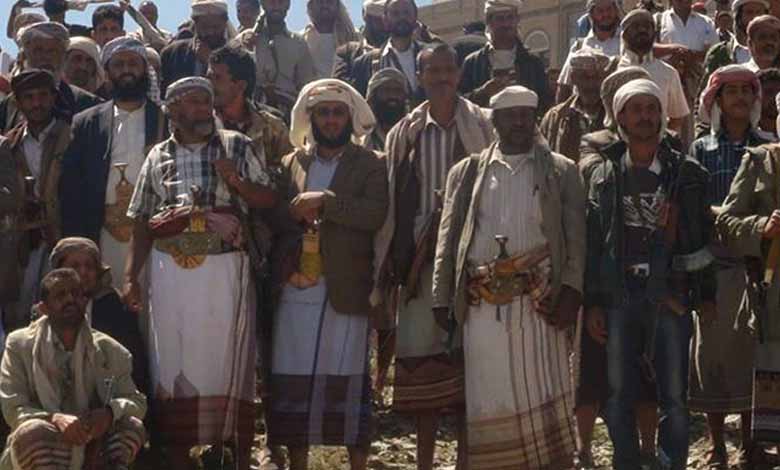The Yemeni Brotherhood admitted involvement in the Shabwah rebellion and demand the removal of ‘Al-Awlaki’

The Brotherhood’s political lever in Yemen, Al-Islah, implicitly acknowledged its responsibility for the military rebellion against the legitimate authorities in Shabwah province.
Hours after a committee appointed by the Presidential Command Council, headed by the Yemeni Defense Minister, ended its work to contain the situation in Shabwah following the Brotherhood coup, the Al-Islah party came out, waving a review of its participation in the Presidential Command Council.
In a strongly-worded statement issued by the Muslim Brotherhood at dawn on Friday, the Brotherhood threatened to break up the popular consensus on condition that its goals are achieved.
The Brotherhood demanded the removal of Shabwah governor Awadh AL-Awlaki from the head of Shabwah’s local authority and the rehabilitation of its insurgent members in exchange for not fulfilling his promise.
The statement of the Brotherhood organization carried systematic contradictions in its content; The Presidential Command Council demanded that the events be dealt with in an equitable manner that would restore the consideration of the Yemeni people’s battle against the Houthi-Iranian project.
He also adopted the stance of Shabwah’s rebel leaders, rejecting the Presidential Command Council’s directives to dismiss their members and appoint others to their posts on a rotating basis.
Yemeni experts and politicians said the Brotherhood’s statement was a clear recognition that the leaders of the rebellion in Shabwah province belong to the terrorist organization.
This came after the Brotherhood’s political arm, the Al-Islah Party, succeeded in breaching legitimacy and confiscating its decision during the days of former President Abd Rabbu Mansour Hadi.
A political party official, who preferred anonymity, described the statement as an escalation and an attempt to scare the Presidential Command Council to prevent it from curbing the group’s influence in Marib and Taiz and displacing their leaders, who hold local power and the military and security institutions.
He added that the Brotherhood’s statement specified the tasks of the Presidential Council in the services and confronting the Houthi militias, while military and security arrangements should not be approached.
The Yemeni politician was surprised by the contradiction of the Brotherhood’s statement. He wondered, “How can a political party adopt a position with the rebellion against the decisions of the authority and the Presidential Council, and at the same time put conditions on the Council to dismiss the governor of Shabwah, who put down the rebellion against legitimacy and the imposition of the prestige of the state.”
Yemeni activists launched a large-scale campaign on social media in Shabwah province; Awadh AL-Awlaki, they described him as “the first wall of resistance against the Brotherhood’s plots and their attempts to dismantle legitimacy”.
On Thursday, a presidential committee formed by the Presidential Command Council in Shabwah province held its first meeting to address the effects of the armed Muslim Brotherhood rebellion that occurred in the oil province a few days ago.
Yemeni Defense Minister Lt. Gen. Muhsin al-Daari, chairman of the committee, vowed during the meeting to address the events in Ataq, describing them as “painful”.
Al-Daari stressed the need to implement presidential decisions, restore state property, and hold accountable officials involved in the rebellion after monitoring their legal violations.
Since dawn on Monday, the Brotherhood and its leaders in the Ataq axis, the special forces and the rescue in Shabwah have led a rebellion against legitimacy, after the commander of the Special Forces, Abd Rabbu Laqab, was dismissed for his involvement in fighting and creating chaos in the province, where Houthi militias are located on its administrative borders.
As a result of this discord, the Presidential Council took decisive action, first of all dismissing Brotherhood rebel leaders and appointing three military and security commanders to replace them.
This comes before the governor of Shabwah, Awadh AL-Awlaki, announced on Wednesday the launch of a military operation to put an end to the Muslim Brotherhood insurgency, in order to impose security and stability in the city of Ataq on the Arabian Sea.












